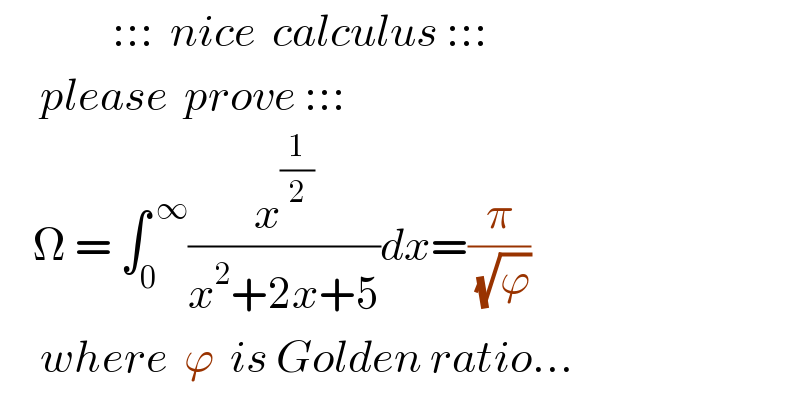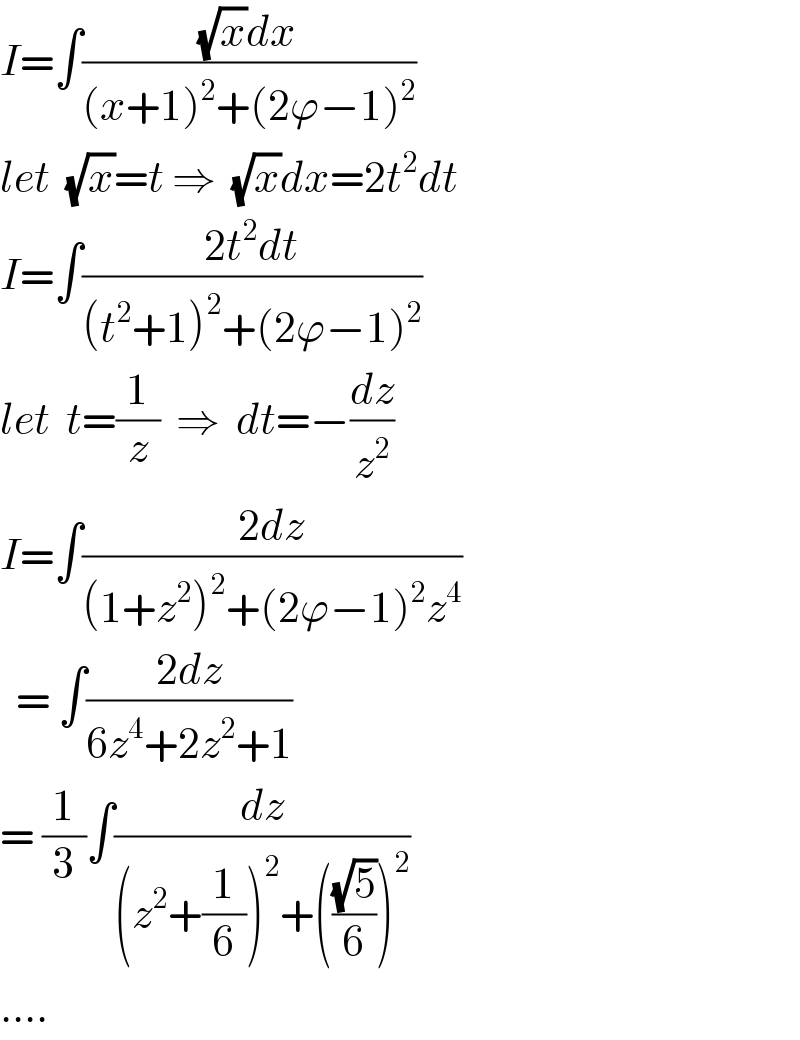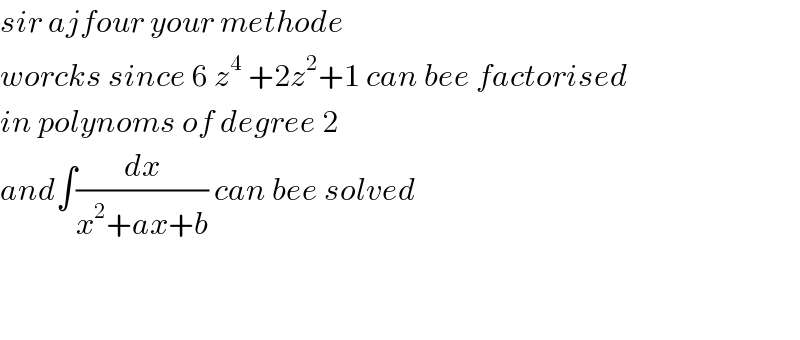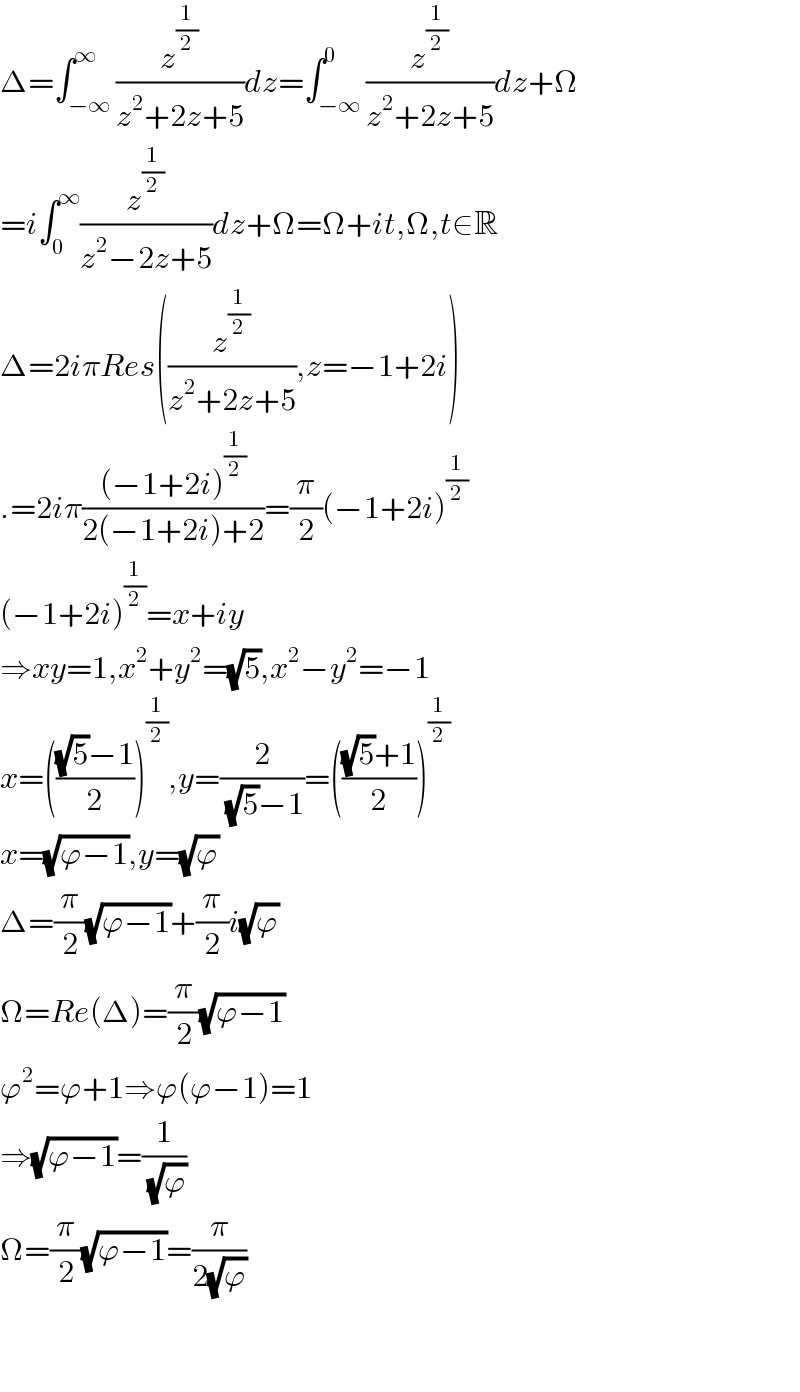
Question and Answers Forum
Question Number 124201 by mnjuly1970 last updated on 01/Dec/20

Answered by ajfour last updated on 02/Dec/20

Commented by mindispower last updated on 02/Dec/20

Commented by mnjuly1970 last updated on 03/Dec/20

Commented by mnjuly1970 last updated on 03/Dec/20

Answered by mindispower last updated on 02/Dec/20

Commented by mnjuly1970 last updated on 02/Dec/20

